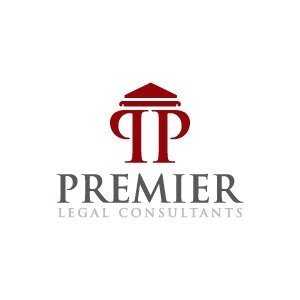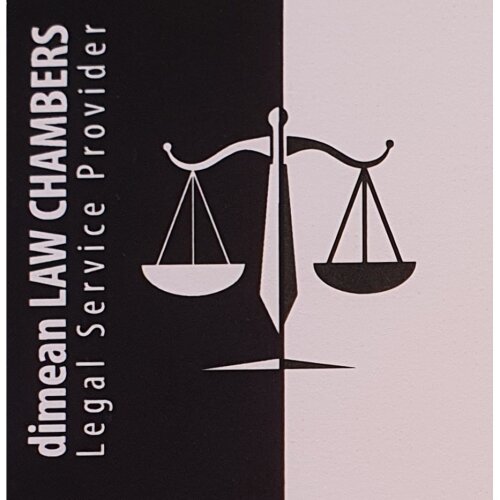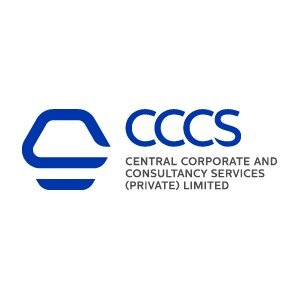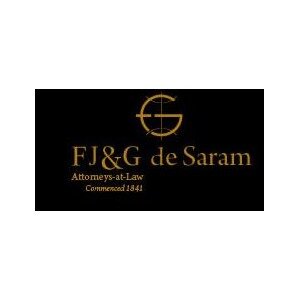Best Water Law Lawyers in Colombo
Share your needs with us, get contacted by law firms.
Free. Takes 2 min.
List of the best lawyers in Colombo, Sri Lanka
About Water Law in Colombo, Sri Lanka
Water Law in Colombo, Sri Lanka refers to the body of legislation, regulations, and customary practices that govern the use, distribution, management, and protection of water resources within the city and its surrounding areas. Sri Lanka, as an island nation, places high importance on water management due to the critical role water plays in daily life, agriculture, industry, and environmental sustainability. The law addresses issues such as water rights, allocation, pollution prevention, conservation, and dispute resolution between different water users. In Colombo, which has a dense urban population and significant economic activity, proper application of Water Law is vital for ensuring fair access and sustainable use of water resources.
Why You May Need a Lawyer
Individuals, businesses, and organizations may need legal assistance in Water Law for several reasons. Common situations include:
- Disputes over water usage rights between neighbors, businesses, or developers
- Concerns regarding illegal borewell drilling or unauthorized water extraction
- Issues related to water pollution from construction sites, industries, or waste disposal
- Negotiating contracts for water supply, treatment, or trading between parties
- Compliance with regulatory requirements when starting new projects that may affect water resources
- Understanding government notifications and obtaining necessary permits from relevant authorities
- Challenging or defending penalties imposed for breaches of water-related laws or bylaws
- Ensuring fair access to communal or public water bodies for livelihood or recreation
Local Laws Overview
Water Law in Colombo is influenced by multiple statutes, bylaws, and regulations at the national, provincial, and municipal levels. Key aspects include:
- Regulatory Framework: The National Water Supply and Drainage Board (NWSDB) is the primary authority overseeing water supply and sanitation. The Irrigation Ordinance, Water Resources Board Act, and Urban Development Authority Law also play important roles.
- Water Rights and Access: Water resources are considered a public trust. Individuals or entities must often secure permission or licenses for extraction, diversion, or new well construction.
- Pollution Control: The National Environmental Act mandates pollution standards, discharge permits, and enforcement for polluters impacting water bodies.
- Urban Management: Local government bodies regulate rainwater harvesting, wastewater management, and drainage systems within the Colombo Municipal Council area.
- Dispute Resolution: Disputes over water rights or contamination may be settled through negotiation, administrative tribunals, or the courts, depending on the nature and parties involved.
Frequently Asked Questions
What are the main laws governing water usage in Colombo?
The primary laws include the Water Resources Board Act, Irrigation Ordinance, National Water Supply and Drainage Board Law, and the National Environmental Act, among others.
Can I dig a well or borehole on my property in Colombo?
You usually need prior approval from the Water Resources Board or relevant municipal authority before digging a well or borehole, especially in urban areas to prevent over-extraction and protect groundwater resources.
Is rainwater harvesting compulsory in Colombo?
In certain new developments, rainwater harvesting systems are required under urban planning regulations. Existing buildings are encouraged but not always legally mandated to install such systems.
Who is responsible for providing clean drinking water in Colombo?
The National Water Supply and Drainage Board is primarily responsible for the supply of treated and safe drinking water throughout Colombo and its suburbs.
What should I do if my water source is being polluted by a neighbor or nearby business?
You should report the issue to the Central Environmental Authority or the local municipal council. Legal action or administrative penalties may be pursued if the pollution is proven.
How are water disputes between landowners resolved?
Water disputes may be settled through negotiation, mediation, administrative hearings, or by filing a civil case in court. Qualified legal support can facilitate an effective resolution.
Do I need a license to use water from lakes or rivers for irrigation or industry?
Yes, commercial or large-scale use of water from natural sources typically requires licensing from the relevant authority, often the Water Resources Board or Irrigation Department.
What are the penalties for illegal water extraction?
Penalties can include fines, disconnection of supply, or even imprisonment depending on the severity and impact of the offense under relevant laws.
Can I challenge a decision by water authorities regarding connections or tariffs?
Yes, you may appeal administrative decisions or challenge them in court if you believe they are unlawful or unjustified. A lawyer can advise on your best options.
What should I do if water supply to my property has been unfairly discontinued?
Contact the relevant water supply authority to understand the reason for discontinuation. If the issue is not resolved, seek legal advice to protect your rights and secure restoration.
Additional Resources
Several agencies and organizations offer guidance or support in water-related legal matters in Colombo:
- National Water Supply and Drainage Board (NWSDB): Key authority for water supply and management.
- Water Resources Board (WRB): Controls groundwater extraction and protection.
- Central Environmental Authority (CEA): Regulates and monitors water pollution and environmental compliance.
- Colombo Municipal Council (CMC): Oversees local regulations, drainage, and sanitation.
- Legal Aid Commission of Sri Lanka: Provides free or low-cost legal services for eligible individuals.
- Local law chambers and bar association stags: Offer referrals to specialized lawyers experienced in Water Law.
Next Steps
If you are facing a water-related legal problem in Colombo or need clarification on your rights, consider taking these steps:
- Gather relevant documents, permits, and any correspondence regarding your water issue.
- Make a detailed note of the events leading to your concern, including dates and the parties involved.
- Contact the appropriate authority or agency to attempt an initial resolution.
- If the matter is not resolved or is complex, consult with a lawyer experienced in Water Law in Sri Lanka.
- Ask for an initial legal consultation to discuss your options and possible remedies.
- Follow your lawyer's guidance on next actions, whether administrative resolution, mediation, or court proceedings.
Lawzana helps you find the best lawyers and law firms in Colombo through a curated and pre-screened list of qualified legal professionals. Our platform offers rankings and detailed profiles of attorneys and law firms, allowing you to compare based on practice areas, including Water Law, experience, and client feedback.
Each profile includes a description of the firm's areas of practice, client reviews, team members and partners, year of establishment, spoken languages, office locations, contact information, social media presence, and any published articles or resources. Most firms on our platform speak English and are experienced in both local and international legal matters.
Get a quote from top-rated law firms in Colombo, Sri Lanka — quickly, securely, and without unnecessary hassle.
Disclaimer:
The information provided on this page is for general informational purposes only and does not constitute legal advice. While we strive to ensure the accuracy and relevance of the content, legal information may change over time, and interpretations of the law can vary. You should always consult with a qualified legal professional for advice specific to your situation.
We disclaim all liability for actions taken or not taken based on the content of this page. If you believe any information is incorrect or outdated, please contact us, and we will review and update it where appropriate.

















